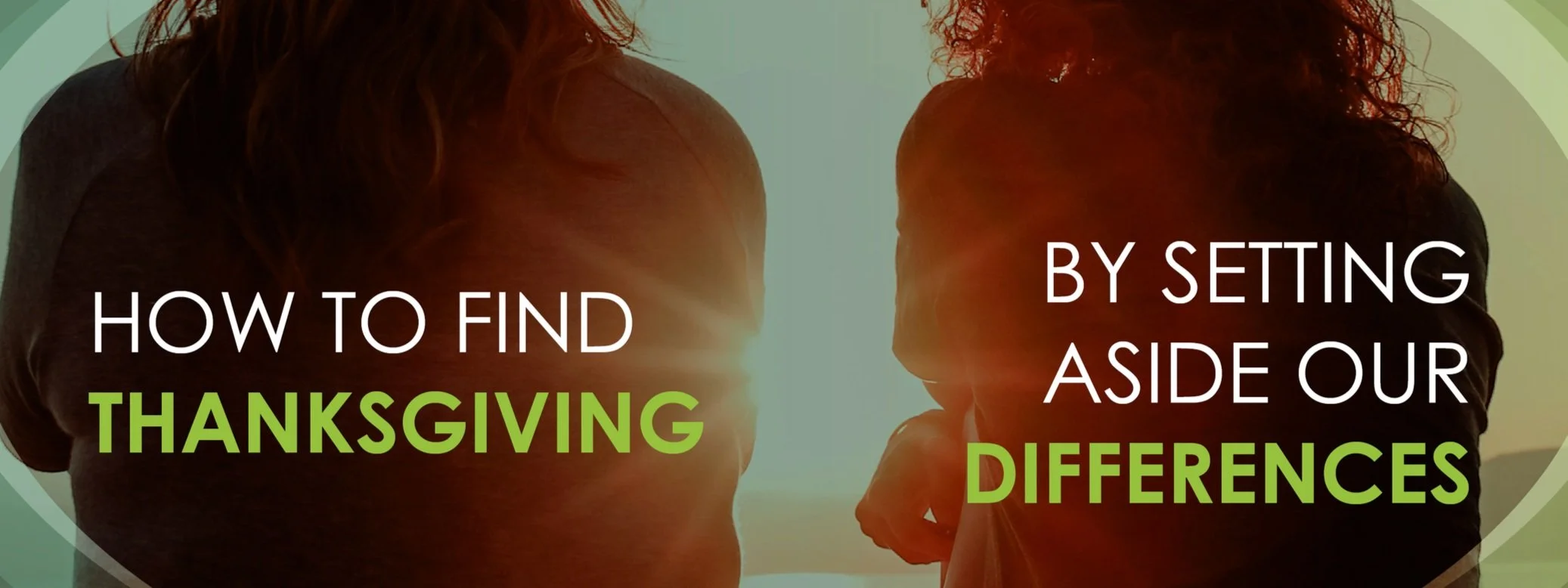How to Find Thanksgiving Despite the “P” Words by Setting Aside our Differences
During the holidays, you may find you may not always agree with your family members. Whether it’s over politics or the pandemic (or the “P” words), there may be some strong opinions that show up at your Thanksgiving celebration. As much as consensus suggests that you shouldn’t talk about these big topics at the dinner table, the reality is that it’s going to be pretty much unavoidable this year, and that’s ok.
You don’t have to agree with everyone’s beliefs, but you can have empathy for where those beliefs come from. It’s important to check in on your friends and family, and It’s acceptable to engage in these conversations. They should just be approached with compassion for others, and consideration and compassion for those who attend the gathering (those in person, or virtually).
Remember the spirit of the holidays includes love, hope, and togetherness. You can always find common ground even if it’s just a common human experience.
It can also truly change our perspective when we are on the lookout for the positives rather than focusing on the negatives. Turning a heavy conversation into a moment of gratitude can shift the conversation into a mind space of contentment. When we express gratitude and receive the same, our brain releases dopamine and serotonin, the two crucial neurotransmitters responsible for our emotions, and they make us feel ‘good’. They enhance our mood immediately, making us feel happy from the inside. In the spirit of Thanksgiving, giving a positive reason to not dominate conversation about the pandemic or politics, not ignore it, but to find gratitude and thankfulness amid everything happening, isn’t that what Thanksgiving is really about?
For more benefits to consciously practicing gratitude every day, check out Positive Psychology’s article on Gratitude.
Acknowledge Your Feelings
You may feel sad, angry, or frustrated you can’t celebrate Thanksgiving the way you want to and that’s ok. Share those feelings with your loved ones. It may help you to understand that you are not alone in those feelings and you have support. Another way to work through those feelings is with a journal. You could also go for a wintery walk. Try not to mask or escape those feelings with too much food, alcohol, or other unhealthy habits.
Seek Help If You Need It
If the holiday blues seem to linger or become more intense, an underlying mental health issue seems to be worsening, or you just don’t feel like yourself, it’s OK to seek help. As with a physical illness, such as diabetes or heart disease, mental health issues deserve treatment, too.
Each of these free mental health resources are available to you if you need support.
LifeWays 24/7 Crisis Line is here for you with our Crisis/Access line at 1 (800) 284-8288. LifeWays is here for you this holiday season and beyond.
211 is an essential service available 24/7 that connects people to expert social services support in their local area. You can call “2-1-1” or text your zip code to 898211 or visit CentralMichigan211.org.
National Suicide Prevention Lifeline offers free, confidential support to anyone in emotional distress, including from suicidal thoughts. They offer both phone calls and online chatting with trained crisis counselors. Call 1 (800) 273-8255, or visit SuicidePreventionLifeline.org.
Crisis Text Line is available for any crisis. A live, trained Crisis Counselor receives the text and responds, all from a secure online platform. Text “4HELP” to 741741.


